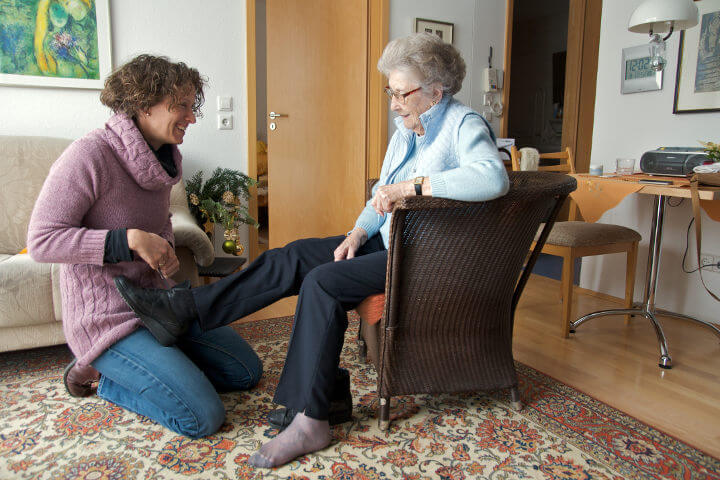
When bringing a baby home from the hospital among the first things parents consider is safety. From proper car seat installation and a crib cleared of all unnecessary material, to electrical outlet covers and pads on table corners, parents do their very best to be sure the environment their child will live in is more than adequate – it’s safe.
But it’s not that safety precautions cease once a child is up, running, and communicative. Whether at school or later on at work, environmental safety precautions are always learned and in place to ensure a healthy, happy life. It’s no different as we reach our later years. Age and circumstances ask us to provide specific safety measures for the sake of flourishing in any season of life.
Home Safety and Alzheimer’s
Caring for Alzheimer’s/Dementia patients, like anyone else, need special considerations for their environment to ensure their safety. The main concern that drives all care for Alzheimer’s patients is the state of cognitive decline, or memory loss. As memory fades, so do previously learned patterns of personal space, location, and judgment. It may be difficult for loved ones to use household appliances such as kitchen items, washers and dryers, or gardening tools. Alzheimer’s patients frequently become confused about where they are, where they were going, and how to get from one place to the next. As perceptions about space, time, and other previously understood patterns for daily life at home fade, there are specific precautions to take that will help create a healthy home environment for everyone.
What to Look For
Just as when a parent brings home a baby or a new employee becomes oriented to a new workplace, the best home care for Alzheimer’s patient safety begins with a comprehensive assessment of the space. Even if the patient or caregiver has lived in the home for a long period of time, the living space must be reviewed with new eyes. Consider appliances and objects that could pose a danger to someone that may become easily disoriented. Look also to how easy it is to gain access to locations such as a garage or basement where heavy equipment for home maintenance, gardening, or lawn care are stored. If your loved one can easily walk about, these places are cause for extra precautions.
Door Safety and Security
You likely have a number of doors in your home, some leading to various rooms and others leading to storage or outdoor spaces. Consider carefully whether there are any hazards located behind doors in your home. You will want to evaluate whether certain doors need additional locks. Caring for the physical safety needs of your loved one with Alzheimer’s also requires consideration of their emotional response. A padlock or other piece of hardware that prevents access or egress may cause frustration, confusion, or feelings of entrapment in your loved one. Keep padlocks and other prevention devices out of immediate sight.
Rather than installing obvious hardware, consider installing half-doors (sometimes called “Dutch doors”) so if you are in a room performing tasks that might be difficult for an Alzheimer’s patient to negotiate, your loved one can still see and interact with you. You might also consider disguising doors by removing obvious handles and placing artwork on the front of the door to make it appear more as a wall.
A Clear Path
Whether or not your loved one is fully mobile, uses an aid, or even a wheelchair, maintaining paths to get from one place to the next is essential to help maintain a sense of calm and access. Make sure there is ample lighting in all main living locations. Ask yourself whether your loved one can easily see a path from their usual living space to the restroom. Consider installing motion lights and a number of nightlights so your loved one does not need to remember to flip a light switch from room to room. Furthermore, ensure all pathways are kept clear of clutter. There should be clear, wide paths to and from all places your loved one usually spends time. For as long as is needed, coffee tables, racks, decorative side tables and object, etc. should all find a new location.
Contact Caring Hands Matter For Professional Assistance
It is possible and perhaps even more pleasurable to care for a loved one suffering from Alzheimer’s decline at home. Creative adaptations to the home can provide both flexibility and comfort for everyone, especially providing loved ones with a safe space where they can thrive. Keeping a person in their home automatically creates an environment that feels more familiar and safe. With a few key adjustments, Alzheimer’s patients can maintain a measure of independence without feeling restricted, at home with those who love them.
For more help with navigating safety challenges in the home for Alzheimer’s patients, please contact Caring Hands Matter online or call us directly. Our licensed professional Fairfax home care professionals can provide you and your family with the assistance and support you need to manage your life and the life of your loved one.